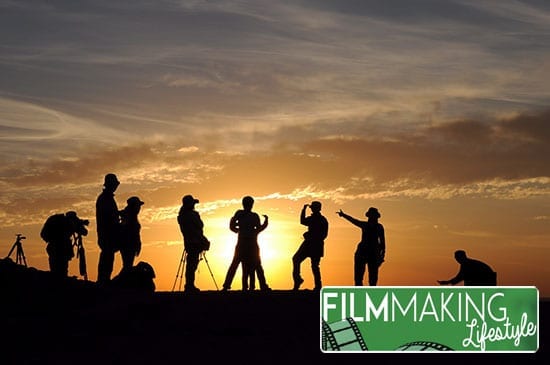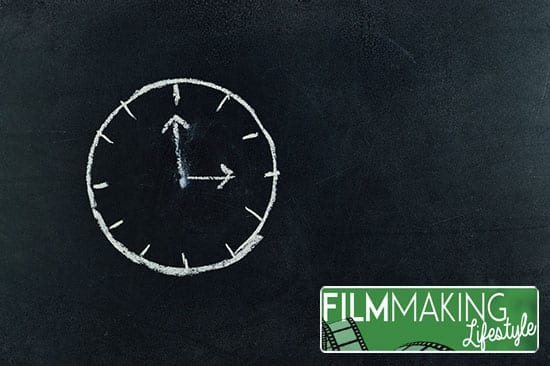
On set etiquette is not just a caprice of directors but the order of rules by which the filming set lives. Everyone in the film world has a role that he or she needs to stand to.
As long as order is followed, the filming process goes just fine.
Once someone breaks the natural order of things, comes chaos and misunderstanding that can lead to serious quarrels and even suspension of work.
If you don’t know the order of rules on set, you risk becoming a catalyst that destroys the film production.
Unless it’s your goal, here are the basic essential rules of film set etiquette to familiarise yourself with.
Once you get chosen as a part of the crew, it’s essential to get acquainted with everyone on set. On your very first day, take time and introduce yourself to anyone and everyone.
Don’t, however, expect that they all will learn your name, yet this is the rule of good manners.
The right introduction is the best way to set contact with your crew and ensure that the upcoming working process goes smoothly, friendly, and fun.

Whatever happens outside of the film set is your private life, and it shouldn’t have any influence on your working performance. This is a time-tested and consistent rule of set etiquette.
Every day on set should be dedicated to your work and doing your best.
Hangover, painful breakup, relative in the hospital – it all shouldn’t matter while you’re working.
If you feel that you can’t hold it all inside, then it’s better to ask for sick leave and stay at home for a day than destroy the working process.

Whatever role you have on set, whether it’s a director or a runner, you need to be polite and accurate with everything you say and do toward your colleagues.

If you’re angry or disappointed, no one should know about it.
Count to 10, use an abacus, take deep breaths – whatever helps you to hold the horses will work. Be careful and thoughtful on set.
You know that once the director says “action” no sound can be present on set except for the actors doing their job. And you need to remember this rule!
Yes, smartphones are a huge and important piece of the toolkit for many on set.
Yet, you can’t let the unexpected sound interrupt the scene! Turn the phone’s volume off and ensure that even the vibration isn’t heard by the people around you.
Besides the phone, keep a handle on your own noise level in general. The less, the better. Most stars don’t like talkative staff, so don’t get signed into this category.

Film sets are a unified organism where every worker is a vital body organ. You have to remember that no matter what you do, you are important and your work is important.
So there is no need to try to advise a director how to block a scene, or a DP how to highlight a character’s cheeks.

Such comments only irritate the recipients and break common understanding inside of the crew.
You know what your part of the job is, so do it. If everyone follows the pattern, the film will be finished in no time!
As a production company, Red Rock Entertainment reviews and participates in many filming processes and has quite an experience in the industry.
The experts from this company insist on the importance of relying on each other during the production because the completion of the project depends on all the participants.
Of course, this is a matter of initial crew creation, but once you’ve chosen these people, trust them.
If you’re a director then you need to lead the process and not stick your nose into everyone’s work with advice (see rule #3)
Rely on the professionalism and competence of the people you’ve chosen and proceed.

Every single object on-set has its place. If you don’t know where some prop or item belongs, don’t touch it!
The chances are that you’ll move set props and then create an awful goof that will harm the film’s reputation.
Stay in your department and work only with items you know how to handle. If something seems to be in your way, it doesn’t mean it is.
Paying attention to everything that happens around you is part of the job description for film crew.
You need to follow not only what the director says, but also carefully listen to the rest of your crew.

For example, before you plug in the charger for your phone, ensure that this action doesn’t harm the lights on set.
If you’re an assistant, then you need to know what goes where and who loves what.
And don’t forget about the changes in the first and bad days in the last list. Your job literally depends on this knowledge!
Even though the film set is not a bank that has strict dress-code conventions, there are still particular rules applied.
No one is talking about particular prohibitions, but it’s always better to mind your appearance.
Try to stay comfortable on set because running on heels or fixing the light in a suit is not the best of ideas!
Besides that, be very careful about colors.
For instance, bright shirts (such as yellow, white, and even light greys) can affect the lighting of a scene by adding undesired color shades.
A Dolly Grip once said that “I understand” is a universal answer on set.
Whatever you’re asked about or told to do, “I understand.” is the best answer.
Besides the “I understand” answer it’s always beneficial to repeat the question in your answer because this clarifies to the person who asked you that you got the point.
“Can you grab the TND9 from the cart when you get a chance?“…
This tactic is especially important when you use a walkie-talkie for communication on set.
Everyone likes ninjas on sets because these are people who are always in the right place at the right time, who do their job perfectly, and who always remain quiet and unseen when needed.
Being quiet on set means not only stopping any talking when the camera is rolling but also turning your cell phone off and not asking non-related questions.

While being a ninja, never disappear from set without telling anyone!
Regardless of your role in the whole film production process, if you’re there, then you’re essential.
Sometimes the whole filming process is stopped because a make-up artist neglected to tell someone they had left early or a cleaner didn’t take away the trash can.
Remember that disappearing from your workplace is generally bad etiquette in any job.
And now keep in mind that you’re working with artists whose mood can be damaged within a split second.
Always tell someone close to you when you’re going on a break or using a toilet in order to avoid complications.
Using proper language onset is not just a part of the film set etiquette, but an essential skill for any filmmaker.
Gary Collins, the CEO of Red Rock Entertainment, insists that this might be the most important rule on set.
Without the language, you won’t be able to understand a thing your director tells you.
Make sure you learn the lingo common for the whole film industry, as well as specific vocabulary present on your set only.

And the final point is to know the rules of your particular film set.
For instance, some studios don’t start working until the lead actor gets a cup of coffee or a director goes around the set for a quick check.
These are small things that are usually unspoken but which play a huge role in the whole filmmaking process.
Be attentive to spotting those “rituals” and ask around if you don’t detect any. But remember to ask like a ninja!
However engaged you are in the film process, however much you love your job, and however strict might be the rule on your particular set, you need to always remember that your life is much more precious than any job and any film made in the world’s history!
Should you feel unsafe or alert at all times, you need to immediately notify someone.
Yes, you might get ridiculed but stay firm on the issue. You never know when your firmness and inner guts can save your own or your colleague’s life!
This article was written by Rachel Wise of Red Rock Entertainment. We hope you’ve found this article on set etiquette helpful.
Any film set etiquette tips that we missed out? Let us know in the comments below.